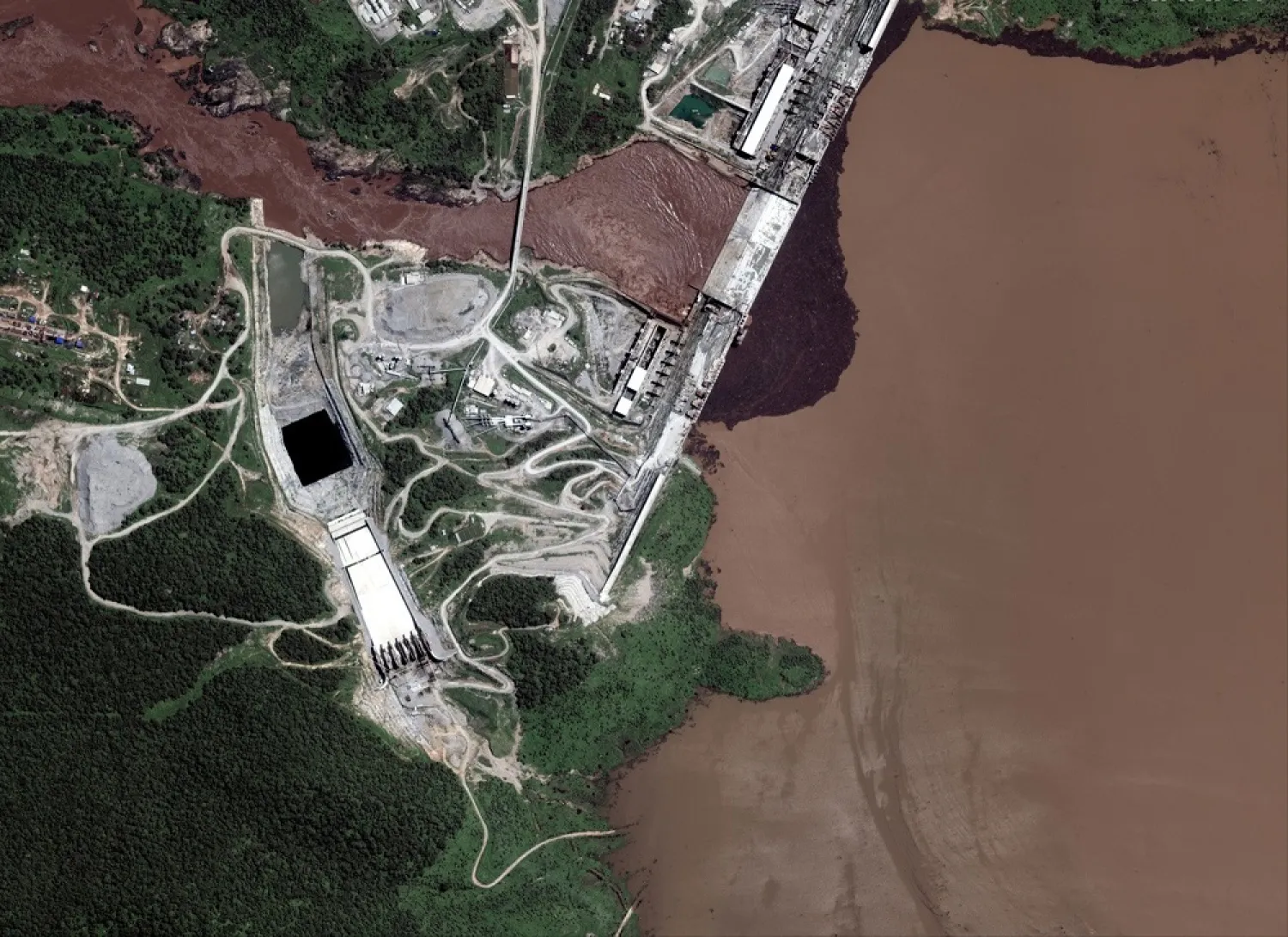Egypt has once again reiterated the importance of reaching a balanced agreement on the Grand Ethiopian Renaissance Dam (GERD).
Egyptian Foreign Minister Sameh Shoukry said his country has showed great flexibility during the negotiations.
He stressed Egypt’s keenness to reach a comprehensive, binding and legal agreement on the rules for filling and operating the dam, ensuring Ethiopia receives its development rights while also preserving Cairo and Khartoum’s water rights, especially during times of drought.
Shoukry stated on Tuesday that President Abdel Fattah al-Sisi had briefed his French counterpart Emmanuel Macron, on the details of the GERD negotiations and the outstanding issues the three countries have been discussing.
Paris has understood the Egyptian position and has expressed readiness to put more effort and convince Addis Ababa of the importance of the positive interaction during negotiations, the minister explained.
Sisi had met Macron in Paris on Monday.
For nearly a decade, the African Union-sponsored talks between Cairo, Addis Ababa and Khartoum over the operation and filling of the mega-dam, Ethiopia is building on the Blue Nile, have faltered.
The three countries have failed to reach an agreement due to their inability to ink a unified draft on the outstanding issues.
Shoukry stressed that Egypt always prefers to contain crises through peaceful means and consensus, especially when it comes to neighboring countries.
Egypt and Sudan fear the dam will affect their shares of the Nile waters, and stress the need to reach a binding agreement that guarantees the rights and interests of the three countries, and includes a mechanism for settling disputes. Ethiopia, however, rejects “restricting its rights to use its water resources.”
In November 2019, the United States decided to mediate in an attempt to reach an agreement among them. Yet, no agreement was reached.
The US suggested an agreement that Egypt considered “fair and balanced” while Ethiopia accused the US of “not acting diplomatically.”
Shoukry urged Addis Ababa to “have a political will to end the crisis.”
Sudan refused last month to return to negotiations according to a methodology that failed to make any tangible progress regarding the role that experts could play.









